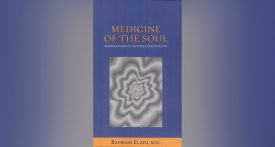304
Vote

This post is a follow-up to a previous post entitled “Ethics in a delicate situation: what do you think?”, which presented a hypothetical case study together with a poll, to which you can still participate if you haven’t done so yet (you might want to do so before reading further). Let us begin with a few remarks about the poll results: On both the French and the English versions of the site, choice e (There are no fundamental differences between helping others and devoting sufficient time to one’s spouse: Jack could have spent that evening exclusively with his wife and still be practicing ethics) has been by far the most popular, followed by choice b for the French version (The well-being of one’s spouse should always take precedence. It should be preferred to the well-being of others and even to one’s own well-being) and choice a for the English version (Efforts of generosity always meet obstacles that must be overcome to allow progress: Jack should have expected Kelly’s opposition and prepared himself better for this test in order to prevent any conflict).
Read more
185
Vote
Once we have discovered the divine ethical principles adapted to our time it is our duty to put them into practice, for only then will they nourish us and gradually become assimilated within us.
As we previously mentioned, a diet must fulfill certain criteria to be considered sound. Our physical organism, for example, requires a varied and balanced diet. Likewise, the practice of a divine ethical principle must fulfill certain conditions in order to have a positive effect on our psychospiritual organism:
(a) A divine ethical principle must be performed on a repeated basis. Only by repeatedly and persistently practicing an ethical principle will it gradually become integrated within our spiritual substance and eventually become part of our second nature. It is not by forcing ourselves to be generous on a few occasions, for example, that we can acquire the virtue of generosity; rather, we must repeatedly push ourselves to perform generous acts until the essence of generosity permeates our spiritual substance.
Read more
348
Vote
Virtue ethics can be defined as an ethical approach that emphasises the character of the agent. Whereas consequentialism emphasises the consequences of the action, and deontological ethics the rules that one may follow, virtue ethics define a virtuous act by a certain virtue in the agent, for example benevolence or generosity. Virtue ethics is not in conflict with deontological or consequentialist approaches, and can even be reconciled with them. The action driven by virtue ethics actually precedes the other two approaches: while deontological ethics or consequentialism addresses what is to be done in any given situation, virtue ethics focuses on the ways to develop certain virtues, or character patterns, in order to act well when needed. The main problem for virtue ethics, then, is 1) to define which virtues are desirable, and 2) how to develop them.
Read more
169
Vote
Medicine of the Soul, Bahram Elahi, Cornwall Books, 2001 In the latest volume of Foundations of Natural Spirituality, Bahram Elahi, M.D., continues to build upon the analogy between the physiological processes of the human body and those of its intangible counterpart, the soul or “psychospiritual organism”. Juxtaposing the science of medicine with that of the […]
Read more

 News
News Podcast
Podcast






Recent Comments